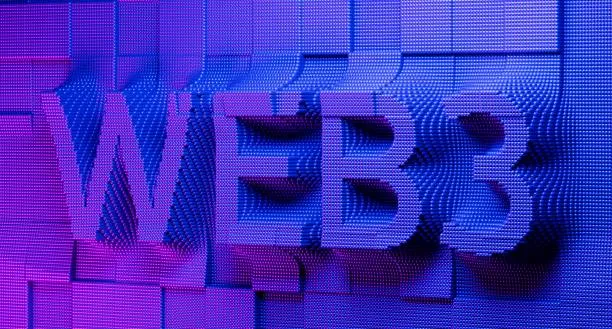Couple of years ago, when I hear the word “Blockchain”, what I only think about are cryptocurrencies such as Bitcoin, Ethereum and the likes. But now this terminology has grown to encompass several other things even to non techies. — Misbawu Abdallah
For an over the counter understanding of this term, let me take you on a ride. First of all, a little bit of history;
What is Web 1.0?
This is the internet in the 90s when it was fully textual-based for sending and receiving emails and news contents. It is known to be the evolution of the Web, a period where companies like Hewlett-Packard (HP) and Microsoft were on top of the map and the likes of Google were still trying to figure out their ideal business advantage in the garage.
Web 2.0
The internet over the past 15–20 years with added functionalities such as interactivity, social networking, etc. through the evolution of digitally smart devices, making way for blogging platforms, online forums and online marketplaces. The huge chunk of data we leave behind when we visit our favorite sites collectively represent our digital footprints are owned and controlled by a selected few big tech companies, the likes of Apple, Meta (Facebook), Microsoft, and Google.
The big data holds secrets to several human behaviors and activities which has become so attractive to several other companies since it equips them with the power to offer a more personalized and targeted service to users. So why not sell our data to them?

Web 3.0
A new wave of the internet offering a decentralized system powered by the Blockchain, Artificial Intelligence (AI), Machine Learning, Virtual Reality (VR), Augmented Reality (AR) technologies. In simple terms, blockchain is an architectural system for the internet that makes it almost impossible to hack due to the way data is created and stored. Meaning that no central corporation owns your data let alone source it out to other brands.
The best qualifier for this is the word “Decentralization” of the internet.
Following the stages through which the web has evolved over the decades, we know that user’s data under Web 2.0 is primarily owned and controlled by the big techs or the authority that created the system — could be the government, banks, etc. But then, blockchain makes it possible for users to own the data they create through a shared network henceforth eliminating any central overseer. So that for a system to determine the data or transaction you’ve created, it’ll have to unpin all the data that preceded it within the network.
This is why it’s application in bitcoin and other cryptocurrencies has impacted and continues to impact the financial systems as it fuels a regulatory crisis.
Cryptocurrency
One of todays’ sensitive areas, as by the passing of each minute, crypto holders are either loosing hugely or gaining massive amount of money. There are a lot of such digital currencies today. They are developed to provide a decentralized method of finance (DeFi). Though it’s a risky form of investment, its impact on how we pay for everyday goods and services is yet to be completely unraveled. It serves as the first area where the blockchain technology was applied. and its success is proving be a gateway to a much broader application in new technologies.
NFTs
NFTs, a name you probably might’ve heard over the past months, run on the blockchain technology and identifies a digital art with a set of data that ties it to previous records has facilitated a great transactional value for artistes and digital creators. It facilitates a digital art to have only one origination, hence its authenticity is secured, but ownership can be transmitted from person to person over the blockchain network.
Metaverse
The metaverse, which first appeared in “Snow Crash”, a 1992 science fiction novel by Neal Stephenson promises a virtual world, much like the real one where people can own digital assets such as real estates, sneakers, and other properties.
It is greatly facilitated by Virtual Reality (VR), Augmented Reality (AR) and Blockchain technologies all combined. Projected to be the future of the internet, only that it is currently undergoing its evolution stage, just like the internet in the 90s (that’s Web 1.0, remember?). Fueling the metaverse with blockchain base systems especially DeFi apps means a new way of working, gaming, shopping, education and so on.
This is just a bit of how the blockchain technology is transforming industries. Yet still, it’s only the beginning. What are your predictions on the emerging future of the internet and how we’ll interact with it and ourselves?
SOURCE: https://medium.com/@misbah_abdl/web3-and-the-blockchain-technology-10582773197f

